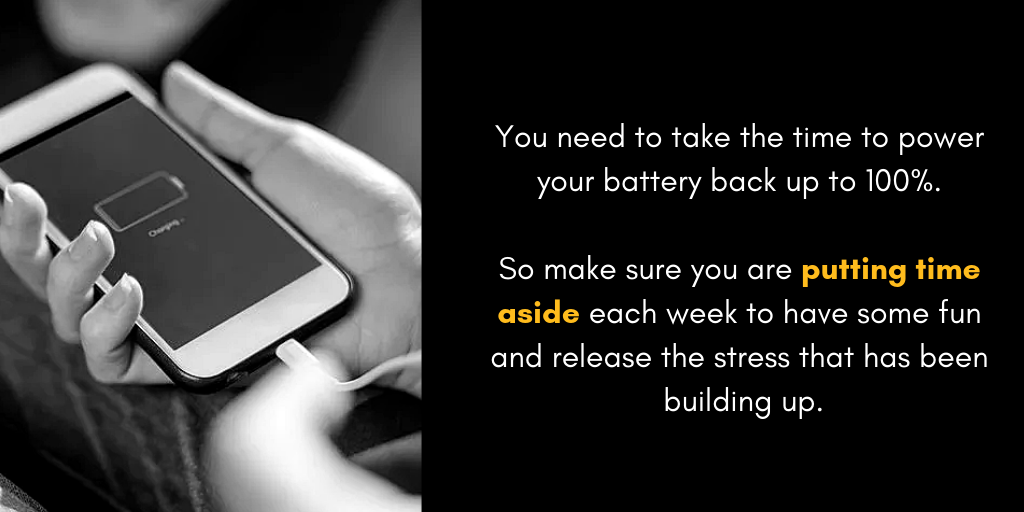Problems solopreneur speakers face and how to solve them Part #1: You feel overwhelmed and struggle with time management

Being a solopreneur speaker has a lot of perks.
You are able to move quickly and efficiently, you can earn higher profits than working for someone or having a big team, you have the freedom to choose when you work, and you get to be your own boss — all things most of the working world would envy.
But being a solopreneur speaker doesn’t come without its challenges.
Some of them can really get you down. Some can even jeopardize your livelihood.
In this series we are going to look at the top 3 problems many solopreneur speakers face, and what you can do about them.
But first, are you a solopreneur speaker? Jump to this article to find out.
In this article, we are going to look at a major problem many solopreneur speakers face: what to do when you feel overwhelmed, and how to manage your time more effectively.
Problem: I feel overwhelmed and time management is a struggle
The word solo is key to being a solopreneur speaker: you are flying solo and making the business happen… on your own.
There is a lot to do.
Seldomly does someone just wake up, decide they are going to be a speaker, then instantly hit the big stage earning $250,000 per speaking engagement with a best-selling online course and two books to their name. It usually takes a lot of work to get where you want to be.
And that can become overwhelming.
To build your speaking business, you’ll be responsible for:
-
Creating great content: Researching, writing, practicing your talks, creating training sessions, adapting your content for each audience, writing books, creating video courses, recording webinars, and audio courses.
-
Marketing yourself and your content: being active on social media, going to networking events, creating email newsletters, updating your website, emailing potential event organizers, staying abreast of new marketing techniques (e.g. LiveStreaming)
-
Managing your finances: budgeting, accounting, bookkeeping, creating and sending invoices, paying taxes, paying contractors, managing speaking contracts.
-
Communicating: Emailing back and forth with event organizers, connecting with your community on social media, creating engaging social media content, connecting with other speakers or event experts, delegating and offering feedback to any independent contractors or freelancers you are working with.
-
Traveling: one of the perks of being an international solopreneur speaker is that you’ll get to travel the world, but the glamour can wear off when you are traveling for weeks on end, trying to do all your other tasks in airports, hotel rooms, and trains. Also, organizing travel can be a major time-consuming task, even if the event will cover your costs, they won’t always do the planning and organizing for you, and this can be quite a task, especially when travel plans change unexpectedly.
In comparison, when you are working in an office, you are responsible for just one small piece of the pie, and when the business hours are up, you can quit for the day. Solopreneurs don’t really have that luxury.
While you have the freedom to work from anywhere and to choose when you work, when the tasks start piling up, solopreneur speakers often feel like they have to be working all the time to be a success.

But becoming overwhelmed and burning out can put your business at a serious risk — you may start underperforming, get sloppy with your talks and tasks, make mistakes, or suffer from crippling mental and emotional fatigue.
Solution: Adopt better time management, set your priorities, and get some help. (Oh, and relax!)
Do not lose hope! You are not alone!
Many new solopreneurs have gone through this, and there are a plethora of tools you can use to make sure you stay on the ball and have fun doing it.
1. Decide what you can do in a day
Start with putting things in perspective by defining what success looks like to you on a daily basis, and know when to call it a day.
All too often we look at the overarching goals, and like a marathon runner, just keep pushing until we get there. But no marathon runner starts by running a marathon straight off. It takes practice, and time, and daily goals.

Calling it quits at the end of the day is hard, because every time you finish one task, you see another 10 things you need to do. It is often impossible to do everything in a day.
Of course, you could always do better, but if you want to alleviate the risk of burnout, take some time to figure out what enough looks like to you.
Decide what you want to do at the beginning of the day.
Then prioritize getting those things done.
2. Set priorities
We’d suggest starting with 5 major priorities per day.
For example:
-
Write a handful of pages for your upcoming book.
-
Work on a new introduction for your talk next month.
-
Connect with your website developer about changes to your speaker website.
-
Create an email newsletter to send out to your subscribers.
-
Design your marketing plan for next month.
Then add 3 additional smaller tasks
For example:
-
Send an invoice.
-
Check your emails.
-
Spend some time on Twitter or LinkedIn connecting with your community and scheduling some social media posts.
These smaller tasks should be things you can easily knock off in between the bigger tasks… provided you don’t get distracted.

Distractions can be a killer: you were supposed to send an email which should have taken less than 10 minutes, but then you ended up spending an additional 50 minutes adjusting and tweaking your email signature. While your email signature might make a subtle difference, it is probably not going to help you add to your bottom line, and you’ve just spent a huge chunk of your valuable time on it, pushing back all your other tasks... so now you have to work an hour later than you planned.
Do this 3 or 4 times in a day, and suddenly it's well into the evening and you are exhausted, wondering what happened to your day.
If you notice that you need a new email signature, put it on a to-do list for tomorrow, or the day after, and add it as one of the smaller tasks you’ll do in between the more important tasks.
Figure out when you are at your sharpest mentally, and save the bigger, more complex tasks for those times.
3. Hire some help
Are there parts of your business that are eating up a load of time because you are not particularly skilled at them, or they are just too time-consuming?
For example, maybe you are not great at book-keeping, and you spend 3 or 4 hours a week trying to balance your books, eating up a lot of precious time you could be spending creating a new installment of your webinar course.
Being a successful solopreneur speaker does not mean you have to do everything yourself.
Hire someone to help with all the work that’s not essential for you to be doing.
They don’t need to be full-time, or even part-time. You don’t even need someone to do it every day.

Make use of virtual assistants (VAs), freelancers, and independent contractors who can make your job easier and allow you to focus on the areas you’re more skilled in, and that will have a higher payoff for you.
4. Recharge
Lastly, always make sure you take at least one day off per week to recharge.
If you are on the go all the time, you will eventually burn out. Ultimately making you less effective and harming your business.
You need to take the time to power your battery back up to 100%.
So make sure you are putting time aside each week to have some fun and release the stress that has been building up.

This doesn’t mean camping out in bed for an entire day, binge-watching the last season of Game of Thrones, ordering in takeout, and vegging out. Instead, use the time to get balanced and focus on your health and wellbeing. (Nothing against Game of Thrones, it’s a great series, but binge watching it for 10 hours might not the best way to recharge yourself.)
Instead, make sure you get a full 8 hours sleep. Take the time to eat well. Get some exercise. Spend quality time with your friends and family, and do the things you enjoy.
If you are traveling for weeks on end, make sure you schedule one day a week that is neither a travel nor a work day. Do some sightseeing, get a massage, or book yourself into a wellness spa, or get some tickets to a game or a theatre performance.
While it might seem like working 24/7 will help you build your business faster, it won’t. You’ll burn out. Taking the time to recharge will keep you balanced so you can continue to build and sustain your business.
This mini-series is aimed at helping you build your speaking business. We are going to look at the main issues that solopreneurs face, including what to do when you begin to feel isolated, how to scale your business, and top strategies to build your speaker business.
Want to be notified when the next article is published? Sign up for our email list here.









